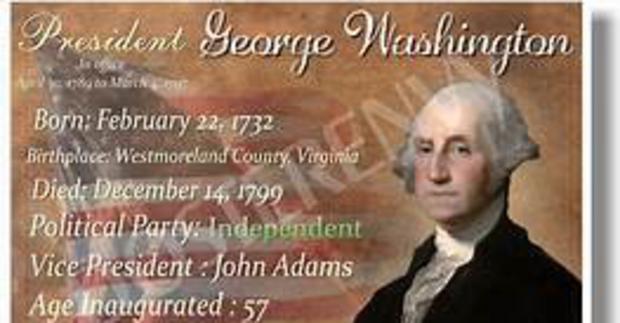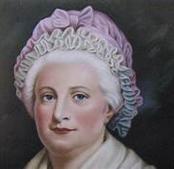"My Middle Class America"
George Washington
"If we mean to support the liberty and independence which has cost us so much blood and treasure to establish, we must drive far away the demon of party spirit and local reproach."
George Washington, one of the most pivotal figures in American history, played a crucial role in the fight for independence from British rule. Born in 1732 in Virginia, Washington's early life was shaped by the frontier experiences of the American colonies. His background in military service during the French and Indian War provided him with significant leadership skills, which he would later use in the American Revolution. When the Continental Congress formed in 1775 to address grievances with Britain, Washington was appointed Commander-in-Chief of the Continental Army, largely due to his military expertise and his reputation as a unifying leader among the colonies.
The American Revolution, which began in 1775, was a struggle for the thirteen colonies to gain independence from Great Britain. Washington’s leadership was tested repeatedly throughout the conflict, particularly because the Continental Army faced many challenges, including limited resources, poor supplies, and a lack of formal training. Washington had to navigate a series of military defeats, harsh winters, and low troop morale. However, his resilience and ability to inspire his soldiers kept the revolution alive. His most famous maneuver came during the winter of 1776, when he crossed the icy Delaware River on Christmas night, launching a surprise attack on Hessian forces in Trenton, New Jersey.
As Commander-in-Chief, Washington faced not only the British Army but also internal challenges. The Continental Congress often struggled to provide adequate support, and many colonists remained loyal to the Crown. Washington had to rely on his diplomatic skills to maintain alliances, particularly with France, whose support was crucial after 1778. His ability to manage political and military pressures helped sustain the revolutionary cause when other leaders might have faltered. His presence on the battlefield, such as at the decisive Siege of Yorktown in 1781, reinforced his image as a steadfast leader committed to the cause of independence.
Washington’s victory at Yorktown, which forced British General Cornwallis to surrender, was a turning point in the war. This victory effectively ended major combat operations in North America, leading to negotiations that resulted in the Treaty of Paris in 1783. The treaty officially recognized the independence of the United States, marking a successful conclusion to the struggle Washington had led for nearly eight years. His refusal to seize power after the war cemented his status as a leader dedicated to democratic principles, and he resigned his military commission, returning to private life at his Mount Vernon estate.
After the war, Washington's leadership continued to be sought. He presided over the Constitutional Convention in 1787, where the U.S. Constitution was drafted, laying the foundation for the nation’s government. His election as the first president of the United States in 1789 reflected the deep trust the American people had in him. Washington set many important precedents during his presidency, including the peaceful transfer of power and the establishment of a cabinet of advisors. His commitment to unity and national identity helped stabilize the fledgling country in its earliest, most fragile years.
In conclusion, George Washington’s role in the fight for independence was defined by his perseverance, military acumen, and deep sense of duty. His ability to lead under pressure, maintain morale in the face of adversity, and navigate complex political landscapes made him an indispensable figure in the creation of the United States. His legacy as a revolutionary leader and statesman continues to influence the values and structure of the nation to this day.
"The fight for independence"



